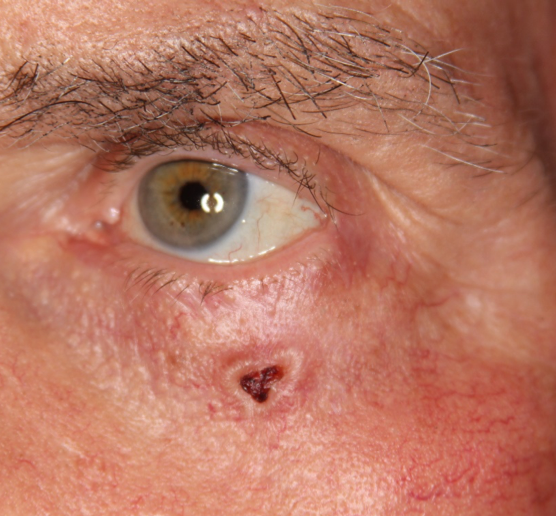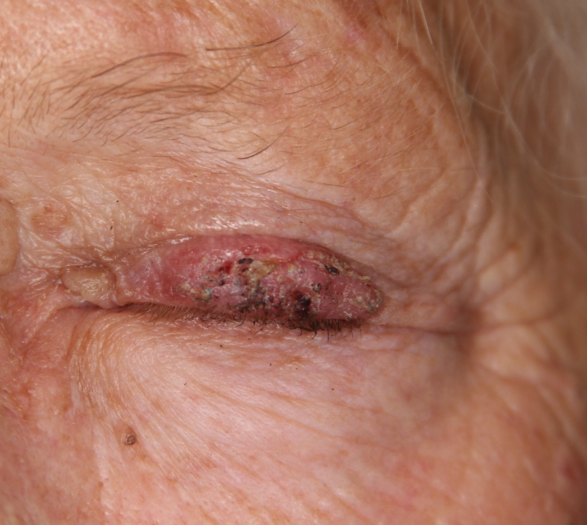Skin Cancer Awareness Month
May is Skin Cancer Awareness Month. Oculoplastic surgeons, such as Dr. Handler, Ehrlich and Dr. Pearce, play a crucial role in caring for patients with skin cancers. While about 1 in 5 people will develop some form of skin cancer in their lifetime, skin cancer of the eyelids can account for up to 10% of cases and pose unique challenges. Basal cell carcinoma and squamous cell carcinoma are by far the most common types, although melanoma can have more of an impact on overall health.
Risk Factors
Without a doubt, the biggest risk factor for developing skin cancers is the ultraviolet (UV) light from sun exposure. This UV light can cause damage to the DNA of skin cells, leading to both tumor formation and growth. Other less common risk factors for skin cancer include fair skin, some genetic conditions, family history, a history of precancerous lesions, exposure to radiation or certain chemicals and a weakened immune system.
Prevention
UV protection of the eyes and face is crucial in the prevention of skin cancers and can be achieved in several ways.
- Sunscreens over 30 SPF offer protection from these harmful rays, but can cause irritation to the eyes.
- Being in the shade, or wearing a hat can offer significant protection from the direct sun.
- High quality prescription glasses and sunglasses offer additional UV protection to the eyes and eyelids.

Figure 1 Basal Cell Carcinoma
Early Detection
Early detection is an important part of the treatment of skin cancers. Skin cancers can vary significantly in their appearance, but any bump or abnormality on the skin that changes, gets bigger, bleeds, or doesn’t heal should prompt evaluation by a provider experienced in skin cancers.

Figure 2 Squamous Cell Carcinoma
Treatment
Skin cancers are usually best treated with surgery. Because the eyelids are so specialized and such an important part of protecting the eyes and vision, special care must be taken.
First, complete removal of the cancer is paramount to prevent recurrence and improve the long-term outcome. At the same time, it is important to preserve as much normal tissue as possible. Depending on the specific diagnosis and location, a multidisciplinary approach may be suggested, with the assistance of a pathologist, or a dermatologist specializing in Mohs surgery.
Second, reconstruction of the eyelids after cancer removal should be left to an experienced surgeon who specializes in this area, such as Dr. Handler, Ehrlich and Dr. Pearce.
Schedule a consult
Skin Cancer Awareness Month comes in May of every year. It is a good reminder to have any suspicious bump around the eyes evaluated by the physicians at Michigan Oculofacial Specialists. Don’t hesitate to schedule a consultation.
